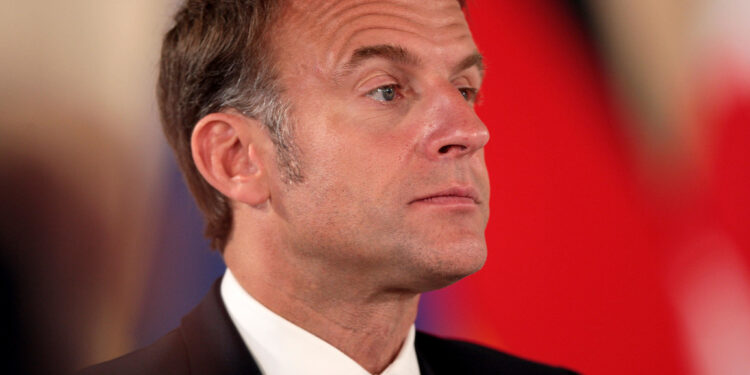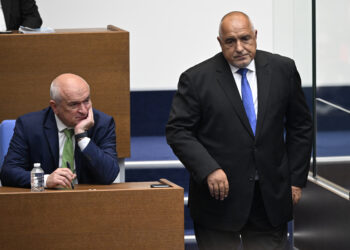Brussels – As the second von der Leyen Commission is taking shape, with Italy among the last countries not having already announced its candidate for the next College, some states in the bloc are currently without a government. Or rather, they are led by outgoing executives after inconclusive elections or particularly acute government crises. Let’s see who among the 27 member states is in this situation.
In France, June’s European elections triggered a political cataclysm that brought the far-right Rassemblement National (RN) of Marine Le Pen and her dauphin Jordan Bardella (who in the European Parliament sits with the Patriots of Europe along with Matteo Salvini’s League and Viktor Orbán’s Fidesz) to outnumber the centrist coalition President Emmanuel Macron, Besoin d’Europe (in the liberals of Renew Europe). In snap legislative elections that Macron surprisingly called, the Nouveau Front Populaire (NFP) progressive coalition, which includes a range of parties from socialists to the radical left along with communists and environmentalists, unexpectedly won a relative majority.
With a split parliament (none of the three main blocs – center-left, center, and radical right – has the numbers to govern alone), Macron kept outgoing premier Gabriel Attal at the head of the government, calling for an “Olympic truce” to suspend bickering between political forces during the Paris 2024 Games. Now that the Olympics are over, hostilities have resumed with a request for impeachment of the president by Jean-Luc Mélenchon, the leader of La France Insoumise (LFI). The move has very little chance of leading to any tangible result other than shattering for good the unity of the left since all other members of the NFP have distanced themselves from the broadside of the radical left.
Today (August 23), Macron began a round of consultations with the parties represented at the Assemblée Nationale to find a solution and give France a new executive. Mélenchon’s exuberance could now thwart the efforts of the progressive front that painstakingly found a shared premier candidate in the figure of economist Lucie Castets. According to some analysts, monsieur le Président could attempt yet another move and impose a centrist candidate on Parliament, as he did with the election of the president of the House last July.
Beyond the Ardennes, Belgium has been without a government since the last European elections when citizens voted not only to elect their representatives in Strasbourg but also to renew regional (Flemish and Walloon) and federal parliaments. On a national scale, the Flemish Liberal Democrats of Premier Alexander De Croo (Open-Vld) fared poorly along with the ecologists (the Francophones of Ecolo and the Flemish Groen). The radical right-wing Flemish independents of the Vlaams Belang (VB) and the Walloon liberals of the Mouvement Réformateur (MR) were successful, finishing second and third, respectively, behind the Nieuw-Vlaamse Alliantie (N-Va), the historic standard bearer of right-wing Flemish independence (in Europe it sits with the ECR Conservatives).
After 70 days of negotiations, a new round of consultations is also being held today in Brussels after the failure of the first attempt to form a new executive. Bart De Wever, leader of the N-Va, resigned as formator in the hands of King Philip on Thursday evening (August 22). However, the ruler is likely to seek a new agreement within the same political coalition that sees two other Flemish formations (the Social Democrats of Vooruit and the Christian Democrats of Cd&V) and two Walloons (the liberals of Mr. and Les éngagés) alongside the N-Va.
Unlike France, however, for Belgium, instability is a constant feature of national political life given the delicate balance between administrative, linguistic, and cultural instances in the complex federal structure that is the constitutional monarchy. The country holds the world record for forming a government: De Croo’s executive, which took office on October 1, 2020, was the first with full powers in more than 650 days after Charles Miche’s coalition crisis in December 2018. A record that the northern European state snatched from itself, surpassing the previous 589 days between 2010 and 2011.
Further south, forming an executive seems to be an impossible mission in Bulgaria. Since April 2021, citizens in the Balkan country have gone to the polls six times, and a seventh early election has been set on the agenda for October 20 after negotiations to create a government failed for the umpteenth time in early August. Sofia is dragging itself to the brink of one of the most acute constitutional crises ever as the civil rights situation deteriorates.
Bulgaria also held legislative and European elections together on June 9, but no single side (let alone a single party) emerged strong enough to govern. The leading party was still the conservative GERB (a member of the European People’s Party), led by former premier Boyko Borissov. However, a deal with the populist right-wing ITN (which sits with the ECR in Europe) and the liberals of the DPS (Renew) fell through. Neither could the other liberals of PP, who in April triggered the political crisis that is still ongoing by withdrawing support for the coalition executive with GERB.
Understandably, Bulgarian citizens are becoming more impatient: voter turnout plummeted from 50.61 percent in April three years ago to 34.41 percent last June. The President of the Republic, Rumen Radev, is also aware of this: “The electoral spiral continues to rage and not only causes irritation but also unlocks a series of destructive processes, the blocking of various institutions, and the alienation of citizens,” he said, urging political forces to devise a way to overcome the impasse. Meanwhile, the Euroskeptic and pro-Russian ultra-nationalists of Vazrazhdane (affiliated with the Europe of Sovereign Nations in Strasbourg) are on the sidelines, riding the wave of discontent and disillusionment among the electorate.
English version by the Translation Service of Withub

![Jean Luc Mélenchon e Manon Aubry al Parlamento europeo [Ph: Simone De La Feld/Eunews]](https://staging.eunews.it/wp-content/uploads/2024/07/IMG_9776-350x250.jpg)




